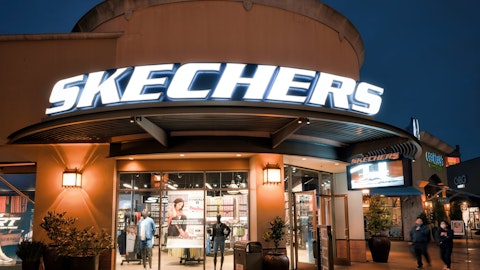
In an industry often defined by headline-making IPOs and billion-dollar venture rounds, Gurhan Kiziloz has taken a different path. As the founder and CEO of Nexus International, he has overseen the company’s growth from a self-funded startup to a major force in global iGaming. In the first half of 2025 alone, Nexus generated $546 million in revenue, more than doubling its 2024 full-year total of $400 million. That performance has placed the company within the Top 100 gaming operators worldwide, a milestone that few privately held firms in the sector have achieved.
For Kiziloz, the result is less about rapid expansion and more about discipline. He has built Nexus on a model he refers to as “controlled scaling,” a deliberate approach that emphasizes sustainable growth over speed or market hype. In an environment where many operators push aggressively into multiple regions at once, often backed by deep-pocketed investors, Nexus has chosen a slower but more precise trajectory, and the numbers suggest it is working.
One of the most distinctive features of Nexus International is its governance and funding structure. Unlike many of the gaming industry’s largest names, including Bet365, Flutter Entertainment, and DraftKings, Nexus has never taken outside capital. There are no venture capital stakes, no private equity partners, and no public shareholders.
This independence allows the leadership team to make decisions without the delays that come from board approvals or quarterly earnings pressures. It also means the company’s growth is funded directly from operational revenue, creating what Kiziloz describes as a natural form of discipline. “When you control the capital, you control the pace,” he noted earlier this year, highlighting how internal decision-making has allowed Nexus to adapt swiftly in highly regulated markets.
The absence of external investors, however, places full accountability on Kiziloz and his team. Without outside oversight, every strategic call, from licensing to expansion, is their responsibility to manage and justify.
Nowhere is Kiziloz’s strategy more evident than in Brazil, which became a regulated iGaming market in early 2025 under Law 14,790/2023. The legislation introduced strict requirements, including facial recognition for player verification and integration with Central Bank–approved payment systems.
Many multinational operators struggled with these rules, with some reporting onboarding delays and reduced activity. Flutter’s Betfair, for example, disclosed a 44% revenue drop in Brazil in Q1 2025. By contrast, Nexus’s Megaposta platform had already been prepared for compliance and was licensed at launch. The early readiness enabled it to scale rapidly, posting strong user retention and consistent transaction volumes. This performance turned Brazil into Nexus’s largest single market in H1, powering much of the $546 million in revenue.
The company has since reinforced that position by establishing its global headquarters in São Paulo, a rare move in a sector where global leaders usually operate out of London, Dublin, or New York. For Kiziloz, however, the logic was straightforward: anchor the business where the data shows the strongest demand.
Nexus’s expansion strategy is also tied to a multi-brand model. Alongside Megaposta, the company operates Spartans.com, a crypto-native gaming platform with multi-currency support, and Lanistar, a licensed gaming brand building its presence in Europe and Latin America with fintech-focused features.
This structure reflects Kiziloz’s preference for diversification within proven markets. Instead of relying on a single global brand, Nexus operates platforms tailored to specific regions and user behaviors, spreading both opportunity and risk.
With a half-year performance of $546 million already secured, Nexus is projecting a full-year run rate of $1.1–$1.2 billion, with a stretch target of $1.54 billion for 2025. Future growth is expected to come from expanding the Brazil model into other Latin American markets such as Colombia, Peru, and Chile, where regulatory frameworks are advancing.
The company’s unusual governance model, no board, no external investors, will continue to define how it makes these moves. For Kiziloz, that is by design. “We’re not here for a quick exit or a headline valuation,” he has said. “We’re here to build a company that can sustain itself in regulated markets.”
As global gaming continues to be dominated by heavily capitalized operators, Nexus International’s ascent into the Top 100 shows there is still room for companies that choose focus, compliance, and self-reliance over publicity and rapid-fire expansion. For Gurhan Kiziloz, the milestone is not the finish line but a foundation for broader strategy, one that could continue to redefine what leadership in iGaming looks like.
Disclosure: Insider Monkey doesn’t recommend purchase of any securities/currencies. Insider Monkey received compensation to publish this article. We don’t guarantee the accuracy of the statements made in this article. Insider Monkey and its principals are not affiliated with the client and have no ownership in the client’s business. Insider Monkey doesn’t recommend the purchase/sale of any securities, cryptocurrencies, or ICOs. Please get in touch with a financial professional before making any financial decisions. You understand that Insider Monkey doesn’t accept any responsibility and you will be using the information presented here at your own risk. You acknowledge that this disclaimer is a simplified version of our Terms of Use, and by accessing or using our site, you agree to be bound by all of its terms and conditions. If at any time you find these terms and conditions unacceptable, you must immediately leave the Site and cease all use of the Site.





